Tiler services Norwich
As a tiler based in Norwich I have worked with many different types and styles of tiles. When you go shopping for wall and floor tiles you will be bombarded with items like ceramic, porcelain etc. It is important to have a basic understanding of the use and durability of the types of tile you want to use on your project. As a tiler I am more than happy to offer guidance in this area.
We feel it is import that our valued clients have an understanding of the wide range of manmade and natural stone products on the market at present, we hope that this short guide below will help you when talking to your Norwich tiler about the range of material on offer.
Manmade Tiles
Ceramic Tiles.
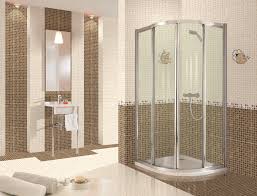 Ceramic tiles are generally made from white or red clay fired in a kiln. They are usually finished with a durable glaze which carries the colour and pattern. The clay back is able to absorb water, most are less frost resistant that other types of tile and so may not be suitable for external use.
Ceramic tiles are generally made from white or red clay fired in a kiln. They are usually finished with a durable glaze which carries the colour and pattern. The clay back is able to absorb water, most are less frost resistant that other types of tile and so may not be suitable for external use.
They are produced for both wall and floor use in varying degrees of wear resistance with some being suitable for commercial use. Sealing is not required with ceramic tiles. They are available in most finishes including high gloss, matt and satin.
Ceramics tiles can be cut using a normal tile cutter. First the glaze is scribed and then the tile is snapped along the scribe. Odd shapes can be cut with a water cooled cutter or tile nippers.
When compared with porcelain tiles, especially porcelain floor tiles, ceramic tiles are more prone to chipping and wear. Most good quality ceramics will last a lifetime if laid correctly.
Mosaic Tiles.
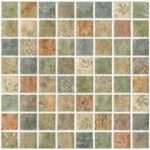
A general term given for small tiles sold and fixed by the sheet. A sheet is a mesh or hessian backing that allows fixing of the tiles in a practical manner instead of individually having to fix every tiny tile. Mosaic tile sheets come in ceramic, glass, porcelain and a variety of natural stone materials.
Cutting of Mosaic tiles is exactly the same as described elsewhere on this page but can be tricky as you often have little to hold on to. Sealing requirements depend on the material that the mosaic tiles are made up of.
Porcelain Tile.
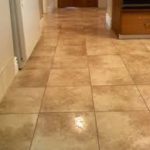 Porcelain tiles are made using pressurised manufacture of porcelain clay dust. The result is a tile that is dense, impervious, fine grained and smooth, with a sharply formed face. They usually have a much lower water absorption rate at the rear of the tile than a ceramic tile which in turn allows them to be classified as frost-proof and hence used as outdoor tiles.
Porcelain tiles are made using pressurised manufacture of porcelain clay dust. The result is a tile that is dense, impervious, fine grained and smooth, with a sharply formed face. They usually have a much lower water absorption rate at the rear of the tile than a ceramic tile which in turn allows them to be classified as frost-proof and hence used as outdoor tiles.
Porcelain tiles can be either glazed and carry the colour pattern in the glaze or full body, which means that the tiles carry the colour and pattern through the entire thickness of the tile making them virtually impervious to wear and suitable for any application from residential to the highest traffic commercial or industrial applications. Glazed Porcelain tiles are much harder and more wear and damage resistant than standard ceramic tiles.
Porcelain tiles are available in most finishes including matt (unglazed), satin and high polished gloss.
Porcelain tiles can be cut in the same way as ceramic tiles, as they are more dense they can be harder work to cut. If you are making shaped cuts, they should be made using a water cooled electric cutter.
Quarry Tiles.
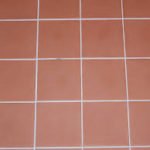 Quarry tiles are made using clay which is then fired to form the tile. Quarry tiles are unglazed and require sealing. Cutting is usually very difficult, the scribe and break method does work if the breaker is very strong.
Quarry tiles are made using clay which is then fired to form the tile. Quarry tiles are unglazed and require sealing. Cutting is usually very difficult, the scribe and break method does work if the breaker is very strong.
Natural stone tiles
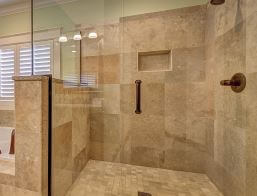 These types of tiles can be used in more places than are immediately obvious;
These types of tiles can be used in more places than are immediately obvious;
Installing a high quality light travertine or limestone in your bathroom creates a warm, relaxing space that looks modern and up-market without breaking the bank, whilst installing a large natural slate in your kitchen or conservatory floor will provide a hard wearing, easy to clean floor that is naturally non-slip and has the strange ability to make a designer room look more modern, and a classic area look more traditional.
With natural stone it is important to seal the stone and have a care and maintenance program in place so that your natural stone lasts a life time.
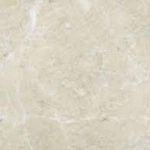 Travertine
Travertine
Travertine is a form of limestone which has been formed in hot springs, it is a very popular material for tiling due to its smooth, easy to cut texture that almost feels soft to the touch. This type of stone requires sealing and should be fixed using a white adhesive.
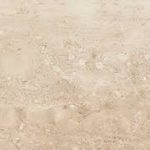 Limestone
Limestone
Limestone is a rock formed millions of years ago from compressed shells and micro skeletons deposited on the sea bed. Limestone tiles, once laid give a smooth stunning finish that adds to the ambient light found in the room. This type of stone requires sealing and should be fixed using a white adhesive.
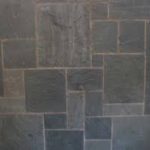 Slate
Slate
Slate is a naturally non-slip product that is suitable for use internally or outdoors. Calibrated slate is machined so that it is all the same thickness making it far easier to lay, in turn this can save you time and expense.
A good tiler will be able to help recommend the best type of tile you will need for the project you have in mind, at JB Tiling and Decorating our tilers will be happy to lend assistance if you so need.
If you need your bathroom or kitchen tiled we are here to help, we can even arrange the plumbing work to be undertaken by TSM Plumbing on your behalf
